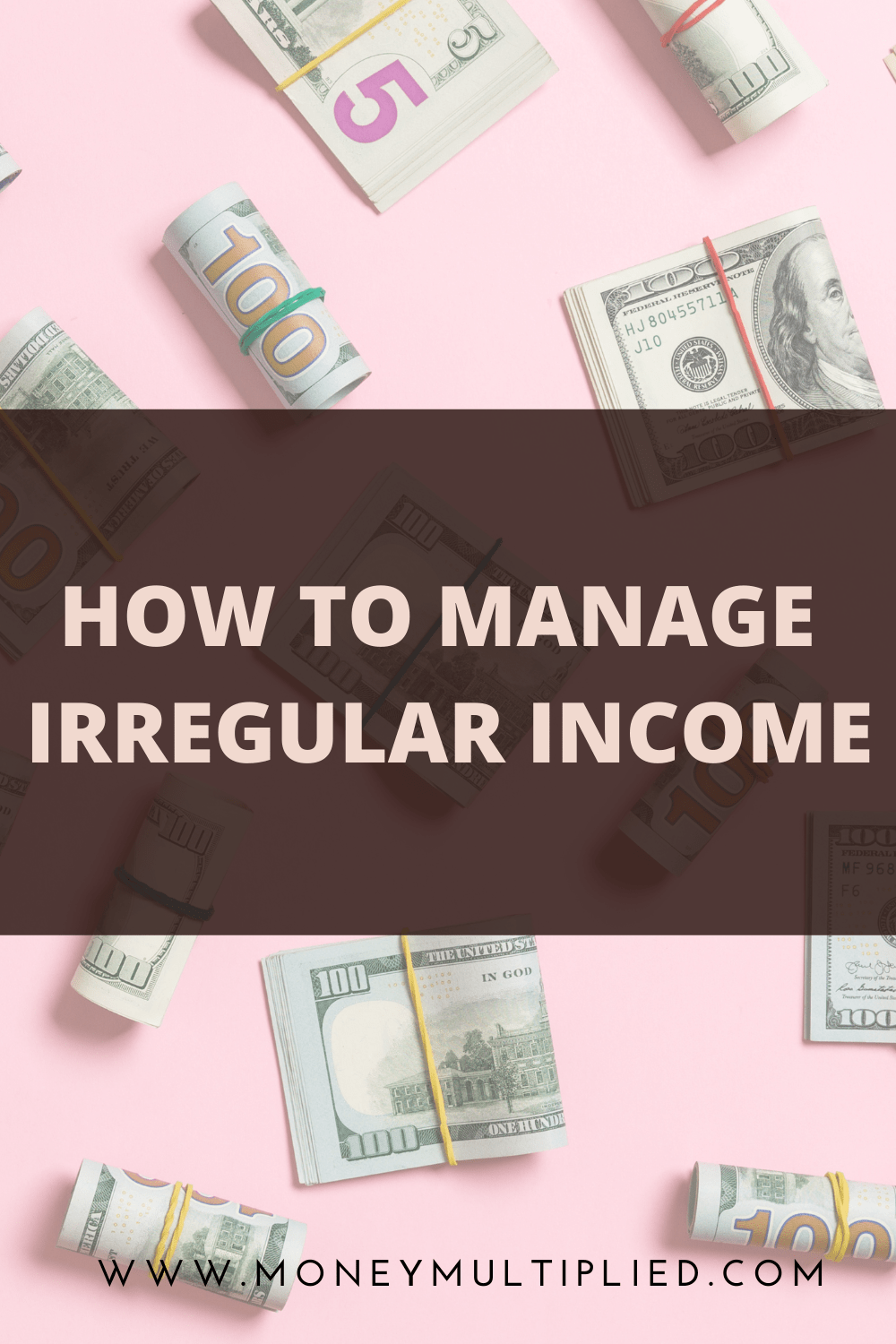Creating a standard budget can be difficult when you’re first getting started with budgeting and taking your finances seriously. You will likely realize that your budget changes from month to month even when you know what to expect as far as your income is concerned. Though, what happens when you’re unsure of the money you’ll be bringing in each month? When this happens you need to know how to manage irregular income.

WHAT IS IRREGULAR INCOME
Your income can still be considered sporadic even though you might be getting paid weekly, biweekly, bimonthly or monthly. Typically, contractors, freelancers and self-employed people make an irregular income or get paid sporadically. Additionally, if you work based off commission your income from month to month can look very different. Budgeting for irregular income can be frustrating but it doesn’t have to be if you implement these tips.
CREATE YOUR LISTS
Similar to standard budgeting you first need to figure out the responsibilities of your money. Every dollar has a job, and by starting with a list of your expenses you can get a better idea of where to place each dollar. The first list you want to create is for fixed expenses you know will not change each month. An example of this is your rent/mortgage and utility bills. The next list you want to create is for the variable expense. These are those costs that vary from month to month. Examples include gas, grocery, and entertainment. You will want to determine if these expenses are more of a need or more of a want and assign them with a ranking based on importance to you and the lifestyle you want to live. With an irregular income, some months will be better than others therefore you might not be able to afford every variable expense like new clothes for instance. Ranking these variable costs will help you identify what you’re really willing to sacrifice.
DETERMINE YOUR AVERAGE MONTHLY INCOME
This step is a bit easier if you’ve been working in your field for at least a year. Reflect back on your income from the previous year and divide your earnings by 12. If you’re just getting started for the very first-time irregular budgeting, go through the last 3-6 months of your bank statements. Comb through this and track your spending habits. Figure out what you can eliminate and add up all those expenses that were absolutely necessary. This should at least give you an idea of what you need to make in order to make ends meet.
SAVING LEFTOVER MONEY
On really good months, avoid splurging! When living on an irregular income it’s a good idea to have a savings account with one month’s worth of expenses. This savings account is separate from your emergency savings account. Should you have a bad month and can’t cover a bill, this is the account to dip into first. You know that your income is irregular, therefore a month where you can’t pay your bills technically isn’t an emergency. You should prepare for some tough months. When you have the extra money in a separate savings account you can be ready for those hard hits. I suggest opening this second savings account in the same bank that is with your main checking account. Additionally, when you have extra money consider using it to pay down debt. For more tips for saving and budgeting, subscribe to the Money Multiplied newsletter and follow the Instagram!